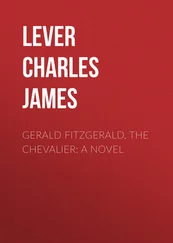‘Who made it?’ I asked.
‘I did,’ he said.
‘There is something about you that made me think you were a clever man with your hands,’ I said.
He held out his hands. Transparent, bloodless, reticulated with narrow black veins, they seemed to vibrate like the wings of an insect. ‘Once upon a time, yes,’ he said. ‘Now, no. A nervous disorder. There is nothing worse than nerves in my profession.’
‘Your profession?’
‘Or trade, if you prefer the word. I am, or was, a watchmaker. I got my title of nobility from King Nicolas, Nicolas the Third,’ he said, and added: ‘I am not a nobleman by birth. Actually, I was a Swiss.’
‘Oh, of course,’ I said, remembering. ‘Nicolas the Third collected clocks and watches.’
‘His was the finest collection in the world.’
‘And you – of course, of course! Pommel – now I get it – Pommel is a name I associate with the Nicolas Clock.’
The Count de Pommel smiled and said: ‘It was a toy rather than a clock in the proper sense of the word. Birds sprang out singing and flapping their wings, Father Time held up a mechanical calendar in the shape of an hour-glass; and I devised a barometer also worked by clockwork, so that figures representing the Four Seasons appeared according to changes of atmospheric pressure. The Nicolas Clock was over-complicated. I am far more proud to have made the watch I pledged with you this evening.’
‘It seemed to me to be made of gold.’
‘Only the case. It is a very simple watch, but perfect; foolproof and waterproof – absolutely accurate. It seems silly, perhaps. I am a retired man, and time does not matter to me. Still, I like accuracy for the sake of accuracy – it is something to be achieved. I cannot work any more; my hands are unsteady, as you see. So I have a regard for that watch. It is the only thing left to me of all that I have made. The others are museum pieces, collectors’ pieces – dead!’
‘Did you also make the figures on the Nicolas Clock, Count de Pommel? They are works of art.’
‘No, a Belgian artist made those: Honoré de Kock. We worked together.’
‘Ah, yes, Honoré de Kock. He died, didn’t he?’
‘Yes, Poor Honoré…. He was a very good fellow. I liked him very much. It was a pity.’
‘He died in an accident, I believe?’ I said.
‘He died on purpose,’ said the Count de Pommel.
‘You don’t mean to say he killed himself?’
‘No, far from it.’
‘Are you telling me that de Kock was murdered?’ I asked.
‘I would rather not talk about him just now, if you will excuse me.’
‘I beg your pardon, Count,’ I said.
He was troubled. ‘No,’ he insisted, ‘no, no, no! You have been very kind, very accommodating. I liked your face as soon as I saw you; and you were very good, too, charming! I should never have been so bold … only when I start playing, which is seldom, I am carried away. I take only a certain sum with me, and if I leave the table – then I lose the thread of the game. I can’t imagine what possessed me to … to … to … Will you dine with us tomorrow, sir?’
‘With pleasure,’ I said, and so we finished the bottle and parted; and I walked back to my hotel, thinking of incongruities. I remembered a temperamental plumber, a clumsy oaf with a soldering iron, who convinced everyone that he was a great craftsman because he was ferociously arrogant; and I thought of Pommel, the greatest living master of his craft, clock and watchmaker to King Nicolas himself – and singularly like a trapped mouse in his pitiful humbleness, in spite of his title of nobility.
I wanted to know more about him. Among other things, I wondered what sort of woman he had married. Pommel must have been more than seventy years old. I imagined a bloated, faded woman of fifty or so, soured by cumulative marital discontent.
I was wrong. She was fifty years old, and fat, but still attractive. Pommel called her Minna. Her hair was dull red, her eyes were blue and clear, and she had the warm, creamy, calm air of a woman who has achieved happiness, so that nothing can hurt or touch her. She was a Hungarian, and had been a needlewoman in King Nicolas’s palace – the kind of a girl that sings as she works and likes to sit still. She was well beloved, secure, healthy and contented – a woman who could grow festive over a crust, or dance to her own singing. Before an hour had passed I gathered that she had been poor Honoré de Kock’s mistress, not because she liked him but because he was so unhappy; that she loved Pommel because he was happy with her and because he was kind-hearted; and that there was a big, dark secret about which she had promised not to speak.
This, of course, was the inside story of the death of Nicolas, the King who collected clocks. In the end I got that story.
* * *
When I was twelve years old (said Pommel, after dinner) I was apprenticed to Tancred Dicker, and I learned a lot from him. You have, perhaps, seen pictures of him – Tancred Dicker, the one that looked like a sheepdog. Soon he let me work for him as a journeyman; I had the knack. By the time I was twenty I worked with Dicker. I went with him when King Nicolas asked him to come and stay and work on clocks, more than forty-five years ago, when I was twenty-two. When Dicker and I arrived we had first to meet a gentleman named Kobalt, a distant relation of King Nicolas’s Queen, a very powerful man indeed. The King relied upon him: the poor King was getting old, and had rheumatoid arthritis. He no longer cared very much for affairs of state, you see. He liked best of all his pastime, his hobby, which was collecting clocks and watches. Oh, yes, yes, the King had had other hobbies in his day; but he had got old – more than seventy-three years old – and turned his mind to higher things, being more or less tired out.
Before we saw the King we saw Kobalt, as I was saying, and Kobalt talked to us about what we had come for. You will have heard of Kobalt, no doubt – or it may be that he was a little before your time. It was Kobalt who ran away with Marli Martin, the wife of the Minister; your father, more likely, heard of that affair. Kobalt is probably no longer in the land of the living; he must have been fifty years old when I first saw him more than forty years ago, and he was still good-looking. He was wicked, and a pig, but all the same he was a nobleman and a gentleman – a dangerous beast, and cunning; very brave – a wild boar, as you might say. He had light hair and moustaches, light-coloured eyes, no eyelashes. As soon as I saw him I disliked him: there was badness all over him. He said to us:
‘I am very happy to meet you. His Majesty is very anxious to consult with you. He is … but listen!’
He raised a finger, pulling out his watch with his free hand; smiled and said: ‘Exactly five o’clock.’ Almost before he had finished speaking, the place became full of music. Birds sang, bells rang, silver and golden gongs sounded – dozens and dozens of striking clocks chimed the hour. A German timepiece sent twelve lame-looking Apostles staggering out to strike a gold-headed Satan with bronze hammers. From a cheap wooden affair leapt a scraggy-looking little cuckoo with five hiccups, while a contraption under a glass dome let out five American-sounding twangs.
‘His Majesty the King has a collection of more than seven hundred clocks,’ said Kobalt, as soon as he could make his voice heard. ‘He has a sort of weakness for clocks – like Louis the Sixteenth. But never mention Louis the Sixteenth in His Majesty’s presence; the name of that unhappy monarch strikes a not-too-pleasant note in the King’s ears. We’ll see more of each other, I hope, my dear Monsieur Dicker. I am sure that we have much in common. Much!’
Читать дальше











